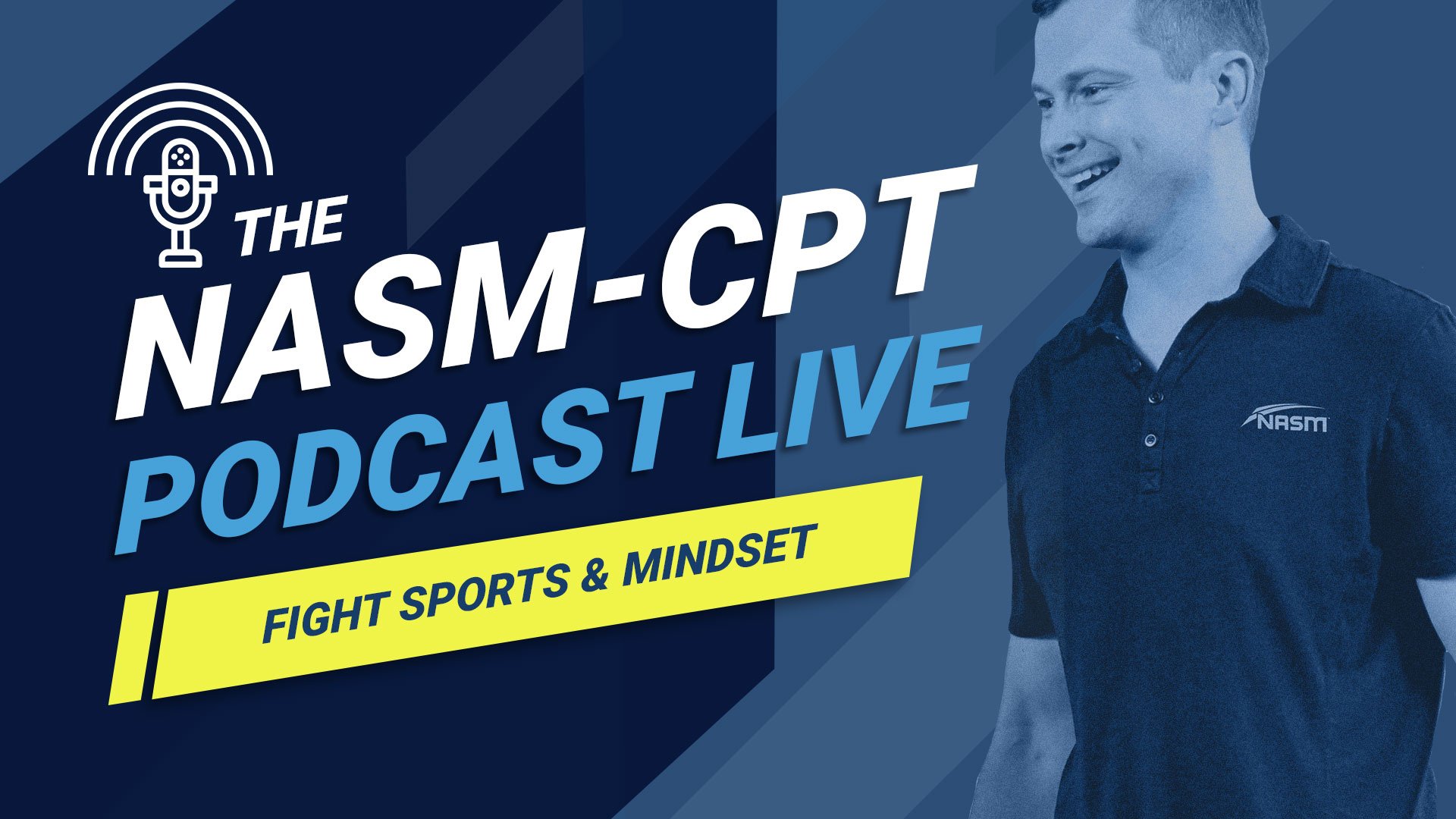Host Rick Richey chats with Toni Ricci about the effectiveness of corrective exercise for professional fighters (see the NASM-CES course curriculum here). Moving beyond that, he also explains how recovery, sleep, mindset, and more affect the overall preparedness of those who compete in fight sports. This episode is an exciting glimpse into the training modalities of exercise experts like Tony Ricci, as well as a fascinating look into the overall world of fight sports.
Here a few bullet points from the episode. There are many more interesting nuggets of wisdom to extract from the interview, so be sure to check out the full talk.
- Reactive skills are much more demanding than proactive. There's more cognition involved when you are reacting to what your opponent already knows. Add the physiological toll of taking punches, and you take the fatigue factor up a few notches.
- How Tony trains a fighter is contingent upon how they prepare and their specific strengths and weaknesses - be it cardiorespiratory conditioning, strength, explosive power, and a myriad of other factors.
- Weight cutting for weigh-ins are unhealthy but are a huge part of the money-making, promotional side of fights. Tony says that it's the trainer's job to manage the extent of the weight cut and make sure it's as safe and effective as possible. He says 10% above scale is optimal for fighting weight - if the fighter so chooses to gain weight for fighting.
- Drastic weigh-in efforts can be dangerous for fighters: it can involve dehydration to hit weight, glycogen depletion, overtraining, and excessive fatigue - all of which lead to worse fighting performance and possibly dangerous situations for the fighter.
- If you have money on the line, you don't tempt physiology; you optimize it. When training fighters during fight camp, you are making sure everyone is getting 8 hours of sleep and proper hydration. There's no point in skimping on those crucial aspects just because you can. Optimizing physiology is vital!
- Motor development is made possible by practice and then giving that motor-learning space so that your brain encodes it.
Tony Ricci is an Assistant Professor at NYU Brooklyn, where he teaches Exercise Physiology and Nutrition. He has been working with athletes for the last 25 years.
NASM-CPt Podcast Episode Teaser
When talking about how he approaches training fighters, Tony says that assumption is not a good thing. You can't just "keep it simple, stupid" when it comes to fighters because the dynamic is always moving and training emphases are always changing.
He says that a fighter might have excellent cardiorespiratory conditioning, but does not have a lot of prowess on the ground. So, fighters get anxious and mentally fatigue themselves because their groundwork isn't as stable.
This imbalance leads to a weakness that needs to be addressed through additional groundwork training.
But by addressing that weakness, a strength might lessen on the other end, so you have to always adjust as a trainer to ensure that fighters are as balanced as possible. Because fighting is so multifaceted, it requires a lot of adjustment and fluidity in training.
This episode teaser is just a fraction of what's discussed within the episode. Be sure to check out this video for a visual version of the interview:
And make sure to check out Nutrition for Fighters to learn even more about the exciting field of combat sports.


-1.png?width=723&name=MicrosoftTeams-image%20(4)-1.png)













